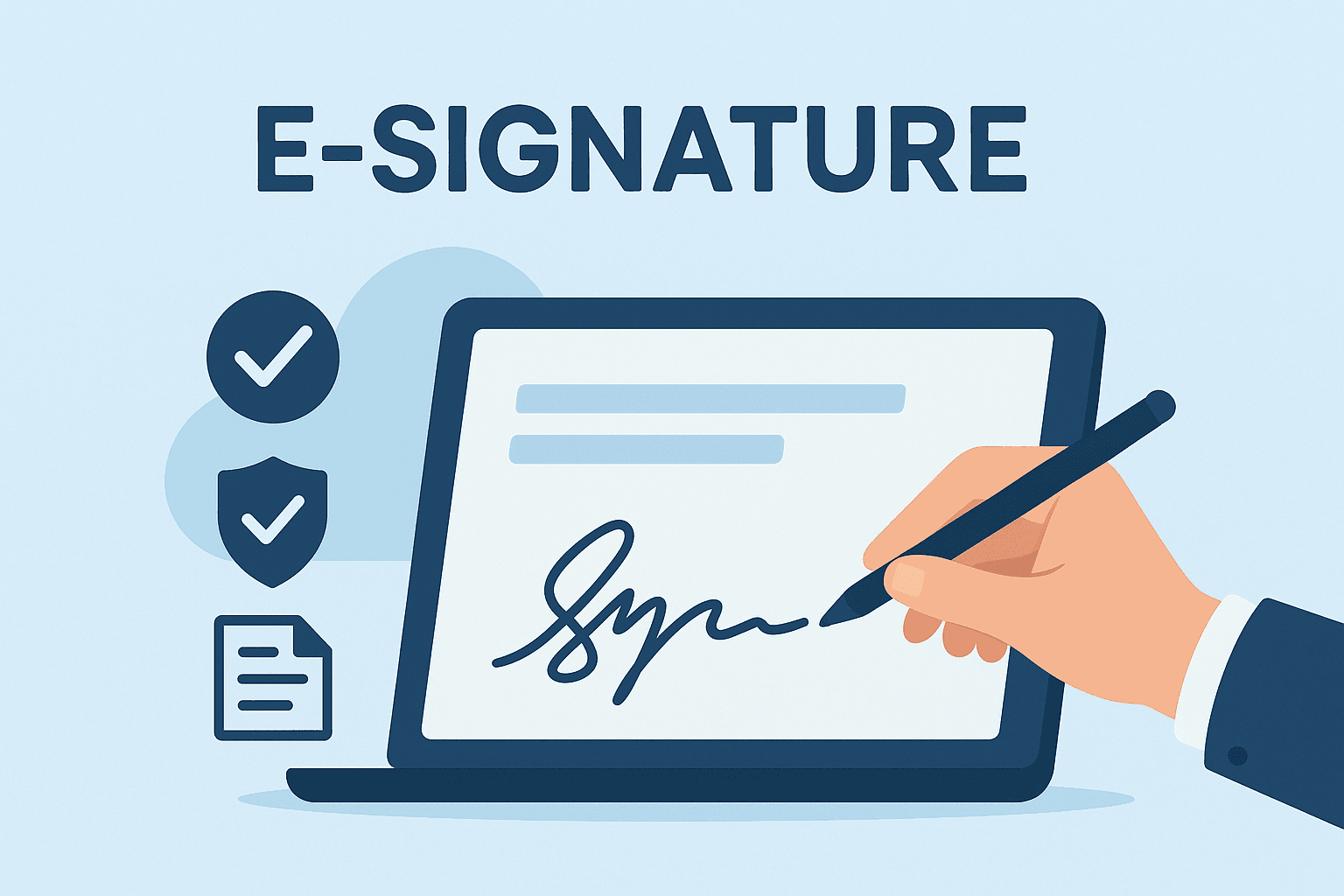are electronic signatures legal in india





Are Electronic Signatures Legal in India?
In an increasingly paperless world, the need for secure and efficient methods of signing documents has led to the widespread adoption of electronic signatures. For businesses and individuals operating in India, the legality of these digital alternatives to handwritten signatures is a critical consideration. So, the big question is: are electronic signatures legal in India?
The short answer is yes—electronic signatures are legal in India. However, understanding their legality requires a closer look at the framework established by Indian law, particularly the Information Technology Act, 2000, and the updates it has undergone over the years.
Legal Framework for Electronic Signatures in India
The key legislation governing electronic signatures in India is the Information Technology Act, 2000 (commonly known as the IT Act). This act recognizes both electronic records and digital signatures, offering them a similar status to traditional paper records and handwritten signatures, provided certain conditions are met.
Section 3 of the IT Act covers digital signatures and ensures that they are legally valid, as long as they fulfill prescribed security and verification measures. An amendment made through Section 3A of the same act expands the scope to include electronic signatures (a broader term which includes various digital technologies beyond just public key infrastructure). According to Section 3A:
“An electronic signature shall be considered reliable if it is … unique to the person using it, capable of identifying that person, and is under the sole control of the person at the time of signing.”
These clauses ensure that electronic signatures are secure, verifiable, and legally enforceable.

Two Recognized Types of Electronic Signatures in India
India recognizes two types of electronic signatures under the IT Act:
-
Digital Signature Certificates (DSC): These are issued by Certifying Authorities (CAs) licensed by the Controller of Certifying Authorities (CCA) of India. DSCs use asymmetric cryptographic systems and are widely used in government e-filing services (such as the Ministry of Corporate Affairs and Income Tax Department).
-
eSign Services: Introduced by the Controller of Certifying Authorities and endorsed by the government, eSign is an Aadhaar-based electronic signature service. It allows Indian residents to sign forms and documents online using their unique Aadhaar identity.
It is important to ensure that any signature solution used complies with either of these two recognized types to ensure legal enforceability in courts and statutory processes.
When Are Electronic Signatures Not Valid in India?
While electronic signatures hold legal weight, there are specific instruments and agreements for which they are excluded. According to the First Schedule of the IT Act, electronic records and signatures are not applicable to the following documents:
- Negotiable instruments like cheques and promissory notes
- Powers of attorney
- Wills and trusts
- Contracts for sale or transfer of immovable property (e.g., real estate deeds)
These exceptions exist primarily due to the formal nature and high level of scrutiny associated with such documents.
Legal Recognition in Indian Courts
Electronic signatures that comply with the IT Act are considered as good as wet-ink signatures under the Indian Evidence Act, 1872. Courts, arbitrators, and regulatory authorities accept electronic records, including digitally signed documents, as evidence—assuming the authenticity of the signing process can be demonstrated.
To meet the threshold of evidence, the signature must be:
- Created using a secure signature method
- Attributable to the purported signatory
- Verifiable upon inspection

Practical Use Cases of Electronic Signatures in India
Electronic and digital signatures are widely used across various sectors in India:
- Banking & Finance: Digitally signed loan agreements and KYC forms
- Education: E-signature on admission forms and transcripts
- Legal Contracts: Service agreements, NDAs, and vendor contracts
- Government Filing: GST filing, MCA (Ministry of Corporate Affairs) compliance, ROC (Registrar of Companies) submissions
This has enhanced operational efficiency, reduced physical paperwork, and expedited turnaround times for essential services.

Certified Authorities and eAuthentication Guidelines
To be considered legal and secure, electronic signatures must be issued through licensed Certifying Authorities (CAs) under the governance of the CCA (Controller of Certifying Authorities) in India. Popular Indian CAs include eMudhra, NSDL, and Sify. These entities ensure adherence to India’s strict public key infrastructure (PKI) standards.
Furthermore, compliance with the eAuthentication Guidelines by the Department of Electronics and Information Technology (DeitY), now under MeitY (Ministry of Electronics and Information Technology), ensures the safety and authenticity of the digital signage processes.
Are International Electronic Signature Solutions Legal in India?
Many global eSignature platforms such as DocuSign and Adobe Sign are used in India. However, these platforms must align with Indian digital signature infrastructure to be legally binding. Specifically, if these platforms integrate with India’s Aadhaar e-KYC or obtain approval from Certifying Authorities, their signatures will be recognized under Indian law.
That said, users must distinguish between “standard” electronic signatures (e.g., typing your name via an app) and fully compliant Indian eSignatures backed by digital certificates issued locally. Only the latter hold complete legal enforceability under the IT Act and may be admissible in legal disputes.
Ensuring Legal Compliance for Cross-Border Users
For non-resident Indians (NRIs), multinational companies, or businesses working across jurisdictions including India, verifying the local compliance of eSignature software is crucial. This ensures that electronically signed documents remain valid, enforceable, and protected from legal ambiguity.
Conclusion
Yes, electronic signatures are legal in India—provided they meet the standards outlined under the Information Technology Act, 2000. For contracts and documentation that fall within the legal purview of the Act, secure and well-authenticated electronic signatures are not only valid but increasingly encouraged in today’s digital-first environment.
However, it is essential for individuals and businesses to keep in mind the exceptions where electronic signatures are not applicable and also ensure that any eSign platforms used are locally compliant.

Recommendation for Hong Kong and Southeast Asia Users
If you’re situated in Hong Kong or Southeast Asia and seeking a regionally compliant and secure solution for electronic signatures, DocuSign is a strong global option—but for more local alignment, we recommend exploring eSignGlobal. Tailored for regional compliance and equipped with robust security standards, eSignGlobal ensures your digital signature practices are legally secure in Asia-Pacific markets.


 Only business email allowed
Only business email allowed


